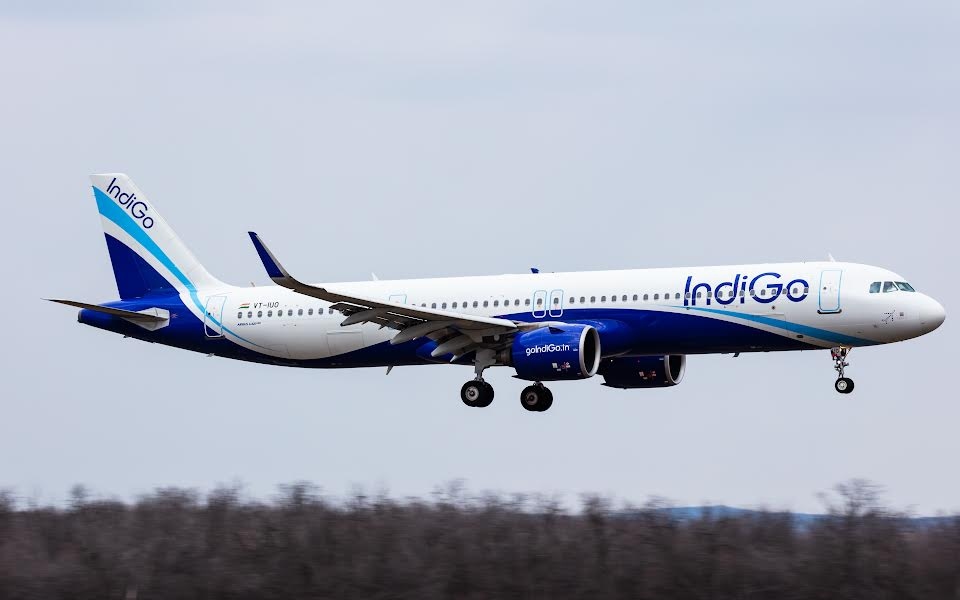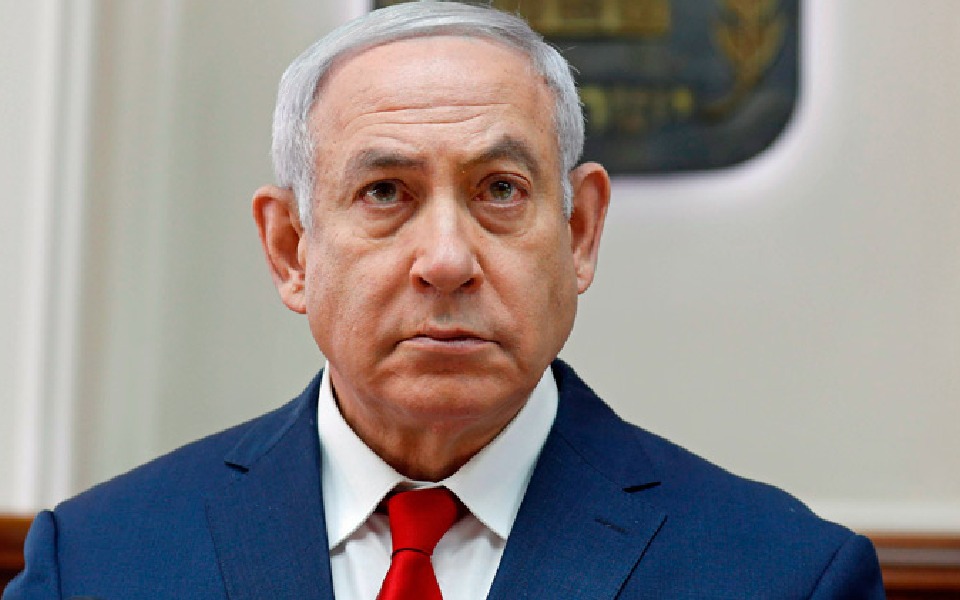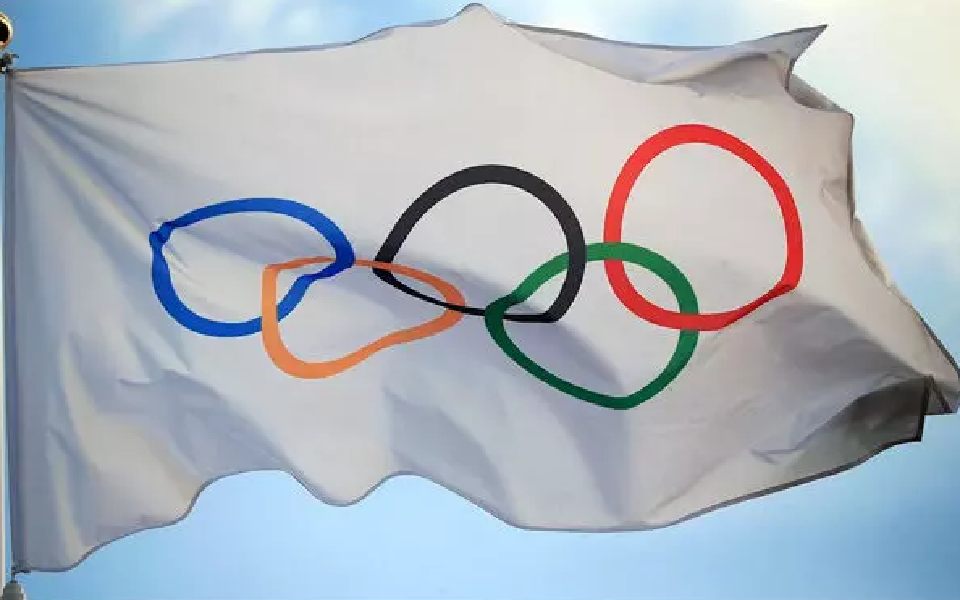On Monday (June 19), India's most significant airline, IndiGo, made history by placing an enormous aircraft order of 500 Airbus A320 neo family planes at the Paris Air Show. This is the greatest number of aircraft ever to be requested in a single go, superseding the February order of 470 Airbus and Boeing aircraft placed by Air India.
IndiGo, who holds the majority of air travel in India with a market share of over 60 percent, will have a steady supply of aircraft until 2035 as a result of this order. This is essential for the airline to successfully continue to be the leader in India's ever-growing aviation market.
By the end of the decade, the no-frills {offering or providing only the essentials : not fancy, elaborate, or luxurious } airline is expected to receive 480 aircraft from its previous orders. This would bring the total number of planes to 1,000 by 2035. Though some of those planes will be used to replace outdated models, the airline will be significantly increasing its fleet size over the next dozen years.
Placing a large investment in the anticipation of growing interest
IndiGo's recent mega order demonstrates their confidence in the Indian aviation market, which is now the third largest in the world and is expanding rapidly. Last month, a record 1.32 crore domestic passengers traveled, outstripping the pre-pandemic highs.
The acquisition of this order has made it evident that IndiGo is not looking to be a mere participant in the growth story; instead, it wants to take the lead and be a dominant force.
Elbers, IndiGo's Chief Executive Officer, told reporters right after signing the contract with Airbus that this order will guarantee the airline for the next decade. He also noted that this order is in line with the Indian government's goal of creating India as a major aviation hub on the global level, allowing IndiGo to plan and construct its network for the long-term.
Tata group airlines, headed by Air India, have a similar aspiration. The combined market share of IndiGo and Tata airlines is now greater than 85%, with close to 1,500 aircraft on order. To put it into perspective, India's total commercial fleet is only 700 planes – less than the fleets of some of the major international airlines, and smaller than the number of planes IndiGo and Air India have on order. This shows that there is an immense potential for growth in the sector as demand increases.
At the same time, two Indian airlines have had a hard time. Go First has filed for bankruptcy while SpiceJet has been dealing with some issues. It is clear that air travel in India is in demand, but it is also known that the cost-sensitive Indian market is a struggle to thrive in, and several carriers have faced financial difficulty, with some even going out of business. Surprisingly, IndiGo has been an exception to this pattern.
Particulars regarding an IndiGo purchase
An order for 500 airplanes of the A320neo family was placed by Indigo and these craft are anticipated to be mostly A320Neo and A321Neo, with a few A321XLRs thrown in. The timeline for delivery is set between 2030 and 2035, leaving Indigo ample opportunity to decide the specific combination of planes that fits its needs with respect to its network and capacity.
Elbers indicated that they still have the opportunity to optimise the combination of 320s and 321s and even A321XLRs as they have the freedom to do so within the order.
The value of the order was not revealed by either IndiGo or Airbus, but according to industry analysts, it is estimated to be more than $50 billion calculated from the list prices. It is typical for big aircraft purchases to be discounted. When asked how the airline would pay for the aircraft, the CEO of IndiGo commented that they have "plenty of time" to work it out. Elbers also noted that "Indigo has a proven model in terms of financials," so they have the necessary time to evaluate all potential options.
Airbus' A320 family is the main range of single-aisle planes for the company. Except for the 40 turboprop planes utilized by IndiGo for regional flights, the sole single-aisle jets of the carrier are all from the A320 family.
IndiGo is likely to deploy the A320neo aircraft on domestic routes and short trips to neighbouring countries, while the A321s, particularly the A321XLRs, are set to be used for more extended overseas journeys, such as those to Europe. The airline is aiming to significantly expand its international network in the near future. According to Airbus, the A320neo's flying range is 3,400 nautical miles, while the A321neo can reach 4,000 nautical miles and the A321XLR can fly for up to 4,700 nautical miles, allowing it to stay in the air for up to 11 hours without stopping.
IndiGo has formulated ambitious plans for the growth of its network and capacity, both in India and internationally. At present, the airline has an armada of 300 planes and operates more than 1800 flights on a daily basis to link 78 local aerodromes and a few overseas locations. It is aiming to double its fleet size by the end of the decade and the 480 aircraft to be delivered by the year 2030 will facilitate that goal.
Let the Truth be known. If you read VB and like VB, please be a VB Supporter and Help us deliver the Truth to one and all.
Jerusalem, Nov 5: Israeli Prime Minister Benjamin Netanyahu on Tuesday dismissed his popular defence minister, Yoav Gallant, in a surprise announcement that came as the country is embroiled in wars on multiple fronts across the region.
Netanyahu and Gallant have repeatedly been at odds over the war in Gaza. But Netanyahu had avoided firing his rival. Netanyahu cited “significant gaps” and a “crisis of trust” between the men in his Tuesday evening announcement.
“In the midst of a war, more than ever, full trust is required between the prime minister and defence minister,” Netanyahu said. “Unfortunately, although in the first months of the campaign there was such trust and there was very fruitful work, during the last months this trust cracked between me and the defence minister.”
In the early days of the war, Israel's leadership presented a unified front as it responded to Hamas' October 7, 2023, attack. But as the war dragged on and spread to Lebanon, key policy differences have emerged. While Netanyahu has called for continued military pressure on Hamas, Gallant had taken a more pragmatic approach, saying that military force has created the necessary conditions for a diplomatic deal that could bring home hostages held by the Hamas group.
Gallant, a former general who has gained public respect with a gruff, no-nonsense personality, said in a statement: “The security of the state of Israel always was, and will always remain, my life's mission."
Gallant has worn a simple, black buttoned shirt throughout the war in a sign of sorrow over the October 7 attack and developed a strong relationship with his US counterpart, Defence Secretary Lloyd Austin.
A previous attempt by Netanyahu to fire Gallant in March 2023 sparked widespread street protests against Netanyahu. He also flirted with the idea of dismissing Gallant over the summer but held off until Tuesday's announcement.
Gallant will be replaced by Foreign Minister Israel Katz, a Netanyahu loyalist and veteran Cabinet minister who was a junior officer in the military. Gideon Saar, a former Netanyahu rival who recently rejoined the government, will take the foreign affairs post.
Netanyahu has a long history of neutralising his rivals. In his statement, he claimed he had made “many attempts” to bridge the gaps with Gallant.
“But they kept getting wider. They also came to the knowledge of the public in an unacceptable way, and worse than that, they came to the knowledge of the enemy - our enemies enjoyed it and derived a lot of benefit from it,” he said.





